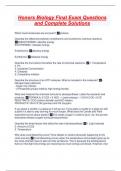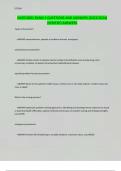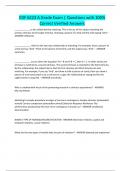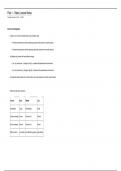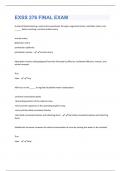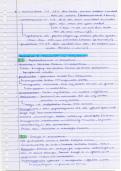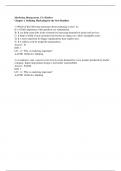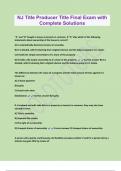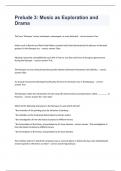Exam (elaborations)
Honors Biology Final Exam Questions and Complete Solutions
- Module
- Institution
Which macromolecules are enzymes? proteins Describe the difference between endothermic and exothermic chemical reactions ENDOTHERMIC: absorbs energy EXOTHERMIC: releases energy Endothermic absorbs energy Exothermic releases energy Describe the five factors that affect the rate of chemical react...
[Show more]
